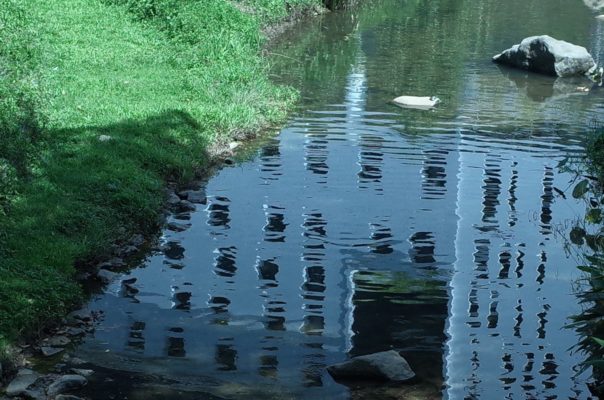
… Cook and his crew woke to a clear sky. They could hardly believe their luck – there was not a single cloud to be seen.
– Chasing Venus, The Race to Measure the Heavens
… had you not lost all your sheep from the good land of Eldorado, you would not be sitting here now eating candied citron and pistachios
– Candide, or Optimism
One of the key ways this century is different can be understood through the law of accelerating returns of Ray Kurzweil who in 2001, declared that “we won’t experience 100 years of progress in the 21st century”, that instead “it will be more like 20,000 years of progress (at today’s rate)”. He suggested back then, that because technological change is exponential, “the future will be far more surprising than most observers realise” and by 2045, we would be able to transcend human limitations with artificial intelligence.
Today, we already have companies like Neuralink which are attempting to link artificial intelligence to human brains (Cyborgs Are Here To Stay and You’d Better Get Used To It). Even if we are not living amongst cyborgs in 25 years, it does not require too far a stretch of the imagination to expect the world which children would come of age in, to be quite unrecognizable, technologically or culturally.
Of this world, the OECD’s Education Directorate says, we have to prepare students for “jobs that have not been created, technologies that have not yet been invented and problems we don’t know yet will arise”. A student of today should not expect what he learns in school to be relevant and sufficient for the entire span of his career and other aspects of life. He has to be a life-long learner, acquiring, on the fly, knowledge and skills necessary to adapt to the conditions of his day. This is why one of the Desired Outcomes of Education envisaged by the Ministry of Education is that every student becomes a “self-directed learner who questions, reflects, perseveres and takes responsibility for his learning”.
Self-Directed Learning (SDL), as the name suggests, is to take control of what, when, why, how and how much we learn. SDL requires at every stage that we reflect on our experience. What is the problem I face? Why am I facing this problem? What can I learn to solve the problem? If I have tried and failed, why did I fail? What should I do differently? What else do I need to learn?
Reflection has been described as to “mentally wander where we have been and try to make some sense out of it” by Costa in Habits of Mind. Reflection will help us understand cause and effect of experience, so we avoid mistakes and become more efficient and efficacious in attaining our goals. In trial and error processes of learning, reflection plays a critical role.
So, organizations engage in After Action Reviews, the Anticipation- Action and Reflection cycle was formulated as part of the OECD Learning Compass 2030 and in schools, students reflect for deep learning. The merits of reflection are obvious and can hardly be gainsaid.
However, the usefulness of reflection is premised on certain assumptions which may require closer inspection. Such assumptions include:
a) The outcome would have been different if things had been done differently
b) Situations would always be amenable to our control
c) Memory of an event would be near perfect
d) Causes would be clear and identifiable
e) Knowing the cause would somehow also mean that we can do something about it
Reflection might leave us susceptible to the narrative fallacy. The narrative fallacy (Explanation) refers to our propensity towards stories – that we need to create a story from the events in our life in a way which fits existing mental models such as ‘Hard work brings success’ – does it always?
In appreciating the indispensable value of reflection, we must also understand its limitations. Handy as it may be, it is but one tool with which we can navigate the complexities of experience.
In 1761, astronomers from around the world attempted to observe the transit of Venus across the sun. This was to enable a breakthrough in mankind’s understanding of the solar system. Armed with scientific equipment, they undertook long and perilous journeys. For various reasons, even those who managed to sight Venus, did not manage to get sufficient data to complete their calculations.
In 1769, having reflected on the experience for some time, they tried again, this time armed with better equipment and plans. Some of these astronomers would have given an arm and a leg to observe the complete transit. They stationed themselves in less than comfortable locales – it was par for the course. They never saw Venus.
One Joseph Banks sailed with Lieutenant James Cook of England, to Tahiti during this time. He was more interested in the flora and fauna of new lands and was not an astronomer. He thought only a fool would fit out a ship merely to observe the transit of Venus. He observed the entire transit of Venus without incident.
Most of the time, reflection should provide insight and offer guidance but every once in a long while, all you need, is a clear sky.
The Brain Dojo




